The Objects That Remind Refugees of Home
Credit to Author: Sona Boker| Date: Fri, 03 May 2019 20:03:09 +0000
This article originally appeared on VICE Netherlands.
My family fled Iraq for the Netherlands about 20 years ago. I’ve always been very grateful to have landed in such a safe country, but there are definitely moments when I miss the country of my birth. I was only a year old at the time, so it isn’t because of my own memories, but because of the food – the dolma, bamia and kibbeh – we eat at home. It’s because of the Arabic shows we watch on TV and my mum’s painting of Middle Eastern landmarks, which is hanging in our living room.
I wanted to find out whether other refugees have specific objects that make them yearn for home, so thanks to the Buddy Film Project – an organisation that helps refugee filmmakers get their projects made – I caught up with five migrants and spoke to them about the things that remind them of their birth country, and how they make themselves feel at home in the Netherlands.
Oday, 21, from Syria
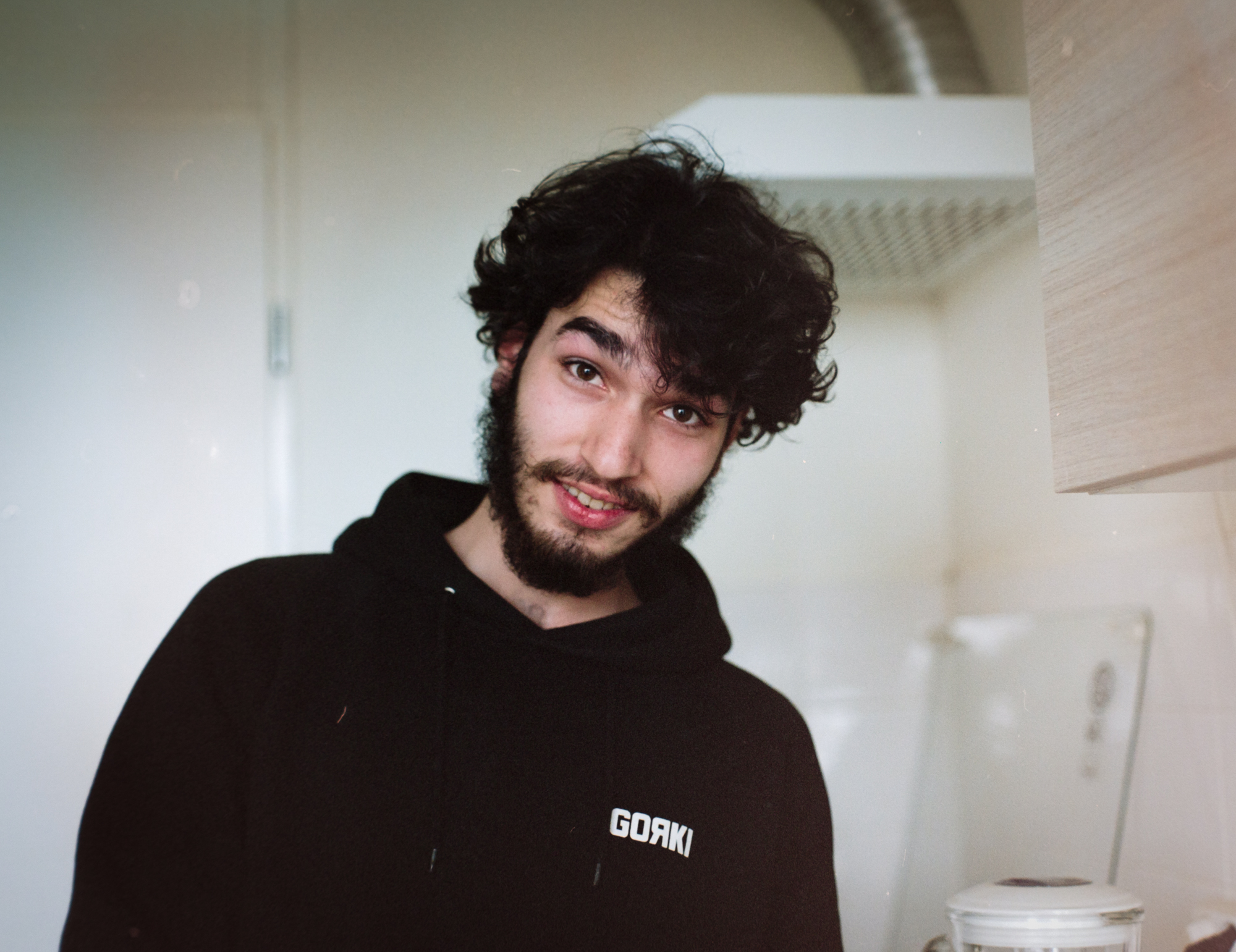
My mornings always start off with Syrian Qahwa and a cigarette. You can’t compare it to coffee from a machine – not only because of the taste, but also because this particular coffee reminds me of the past. Our daily routine was to have coffee together as a family every morning before everyone went to work. Then, about four-and-a-half years ago, my parents decided to make their way to the Netherlands.
“I eventually ended up living with my dad when my parents got divorced. Now, I can do whatever I want in the Netherlands, which is very different from my life in Syria, where everyone knew each other. It was nice, but it also meant that people were all up in each other’s business. I wasn’t free to have a relationship, drink or smoke. If I did, everyone in our community would have talked about it. Here in the Netherlands, though, everyone just does their own thing.
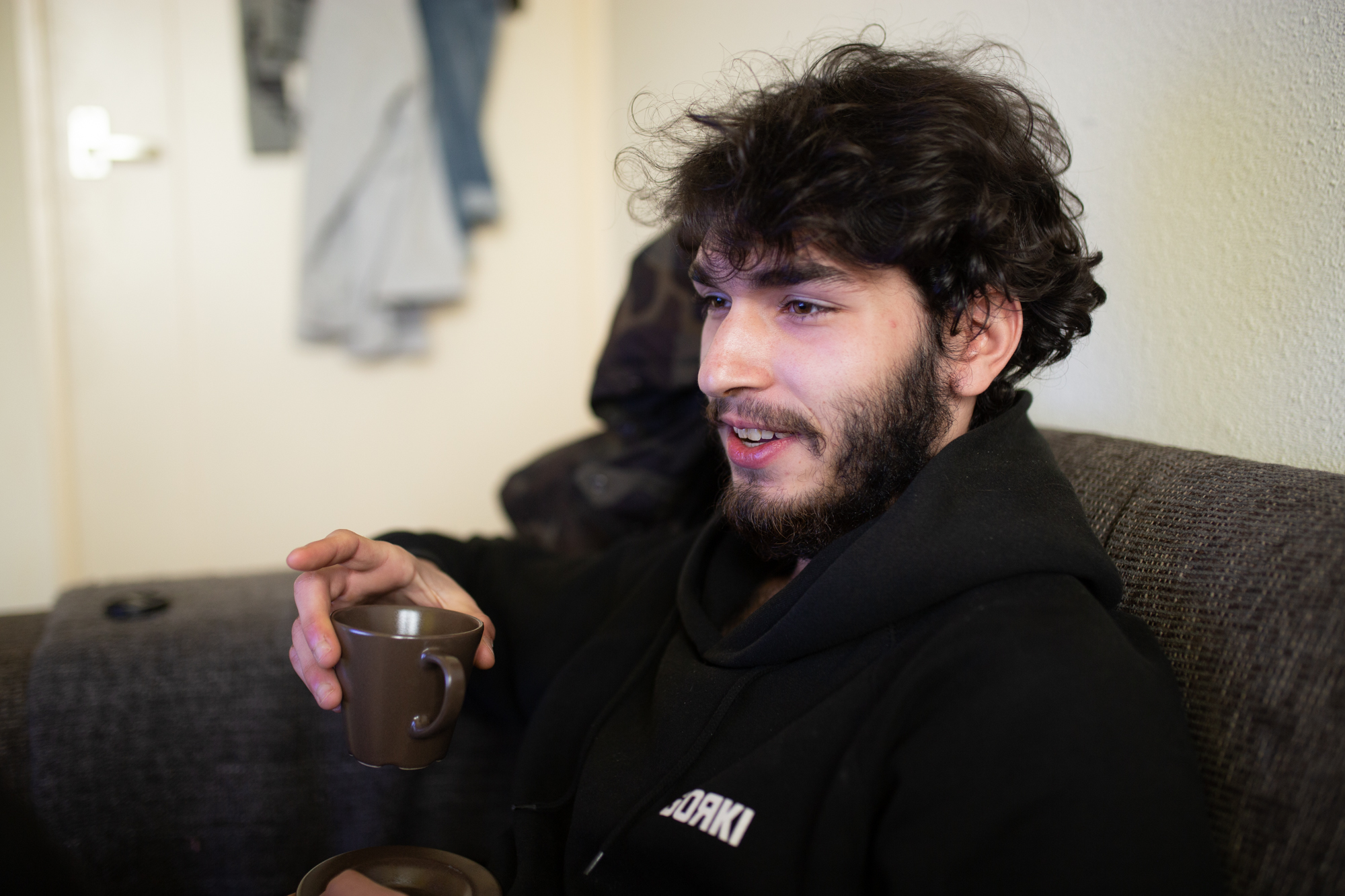
When I think about Syria, I don’t think about possessions, but of specific feelings and the memories attached to them, like our morning coffee routine. To protect that memory and continue the tradition, I always buy my coffee at an Arabic supermarket in town.
That doesn’t mean I want to be stuck in the past; instead of only hanging out with Syrians, I want to get to know as many Dutch people as I can. I want to focus on my new life; on the new Oday who emerged in the Netherlands. Losing something can sometimes mean finding something better.
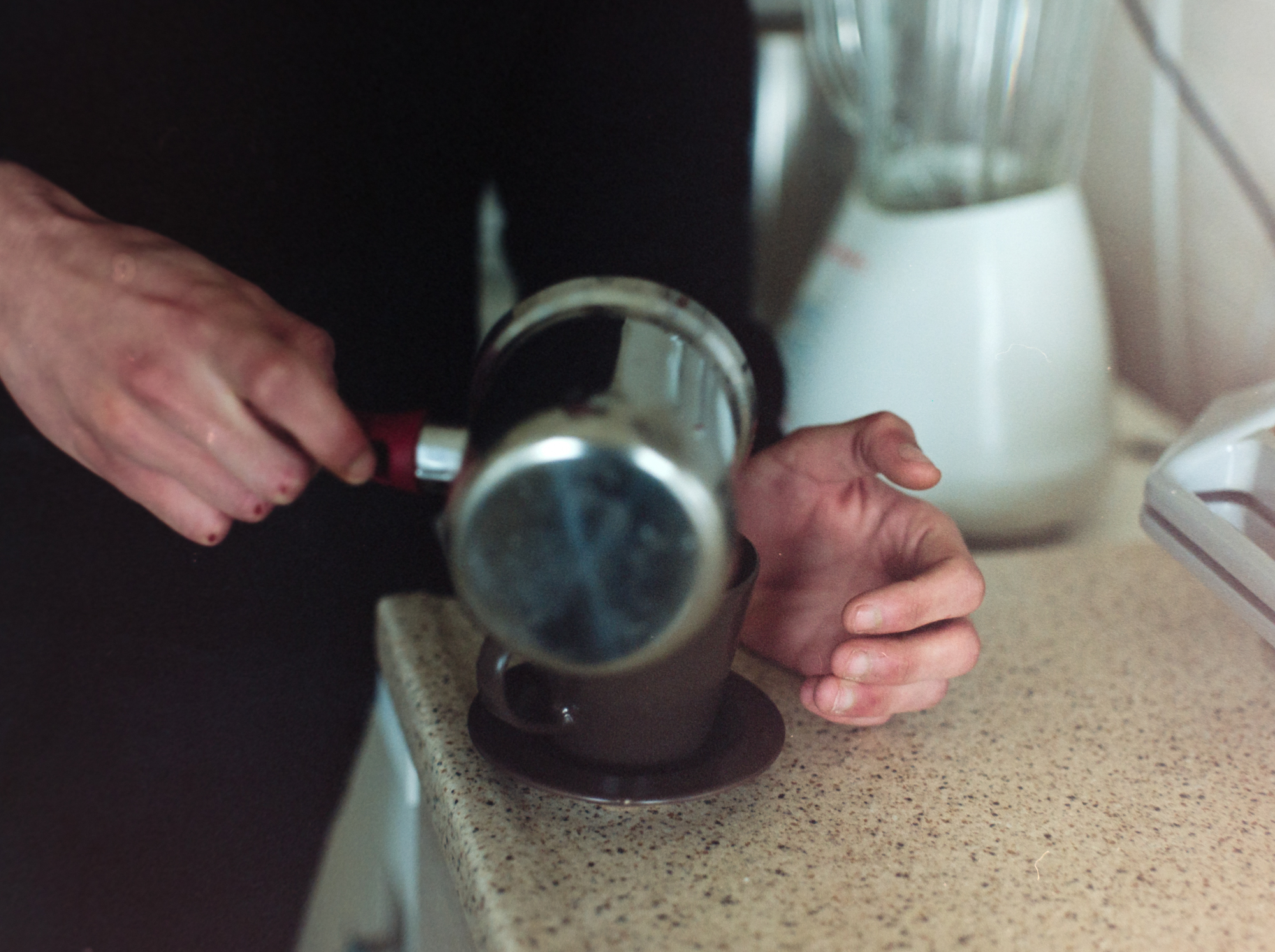
Yasir, 22, from Somalia
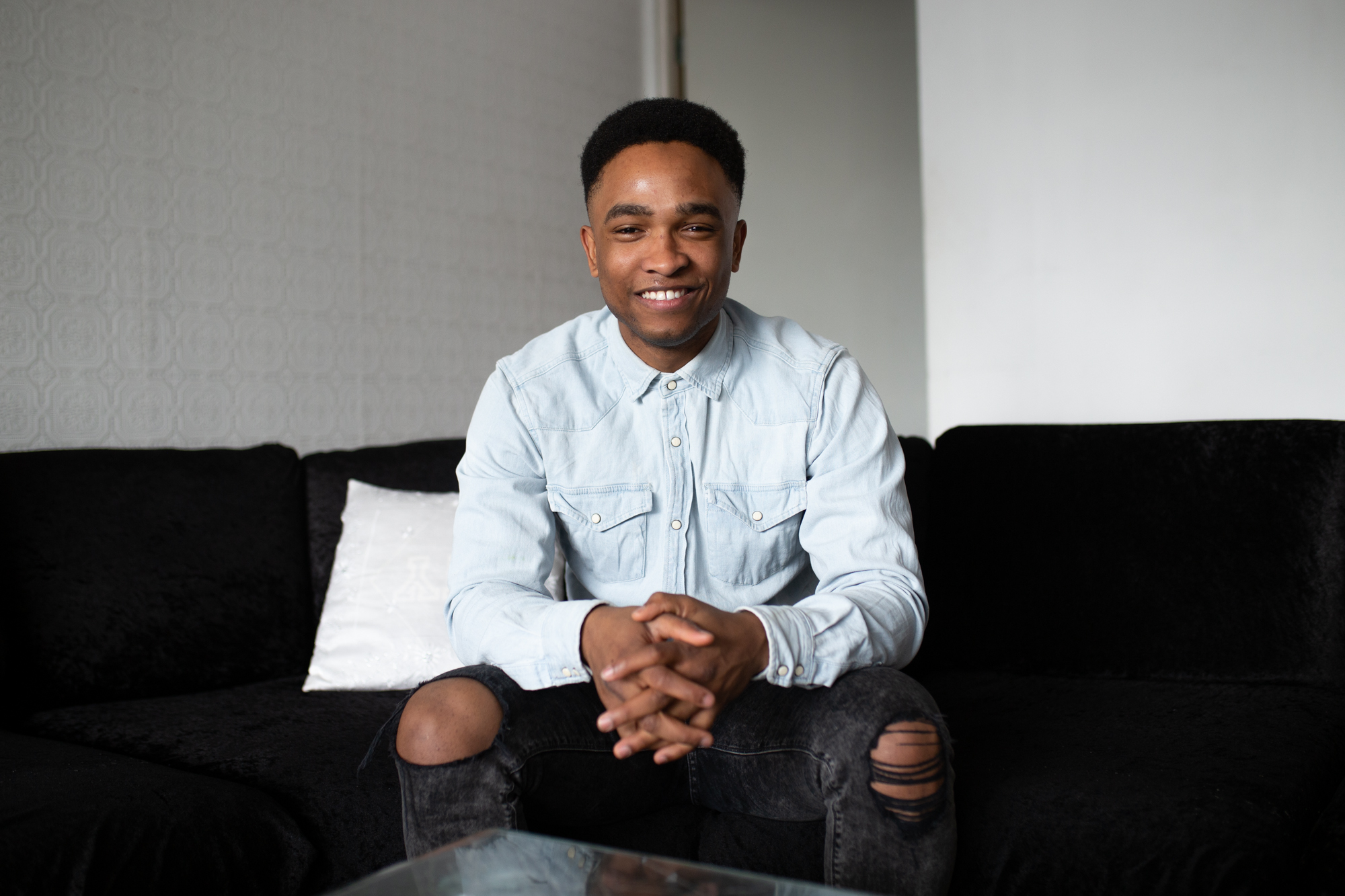
I fled Somalia when I was six years old with my mum and little brother, and ended up in the Netherlands. We would spend the next 11 years moving from refugee centre to refugee centre. This meant that I never really got the chance to feel settled as a kid. Whenever I got close, we’d have to move again – getting attached to objects or possessions was pointless.
My mum’s cooking was the one steady thing I could always rely on. It makes me think of Somalia and helps me to feel at home here. I work in the hospitality industry, and when I’m on a break I usually eat potatoes, vegetables and some meat or fish. It’s good, but it’s not my mum’s chapati and beans.
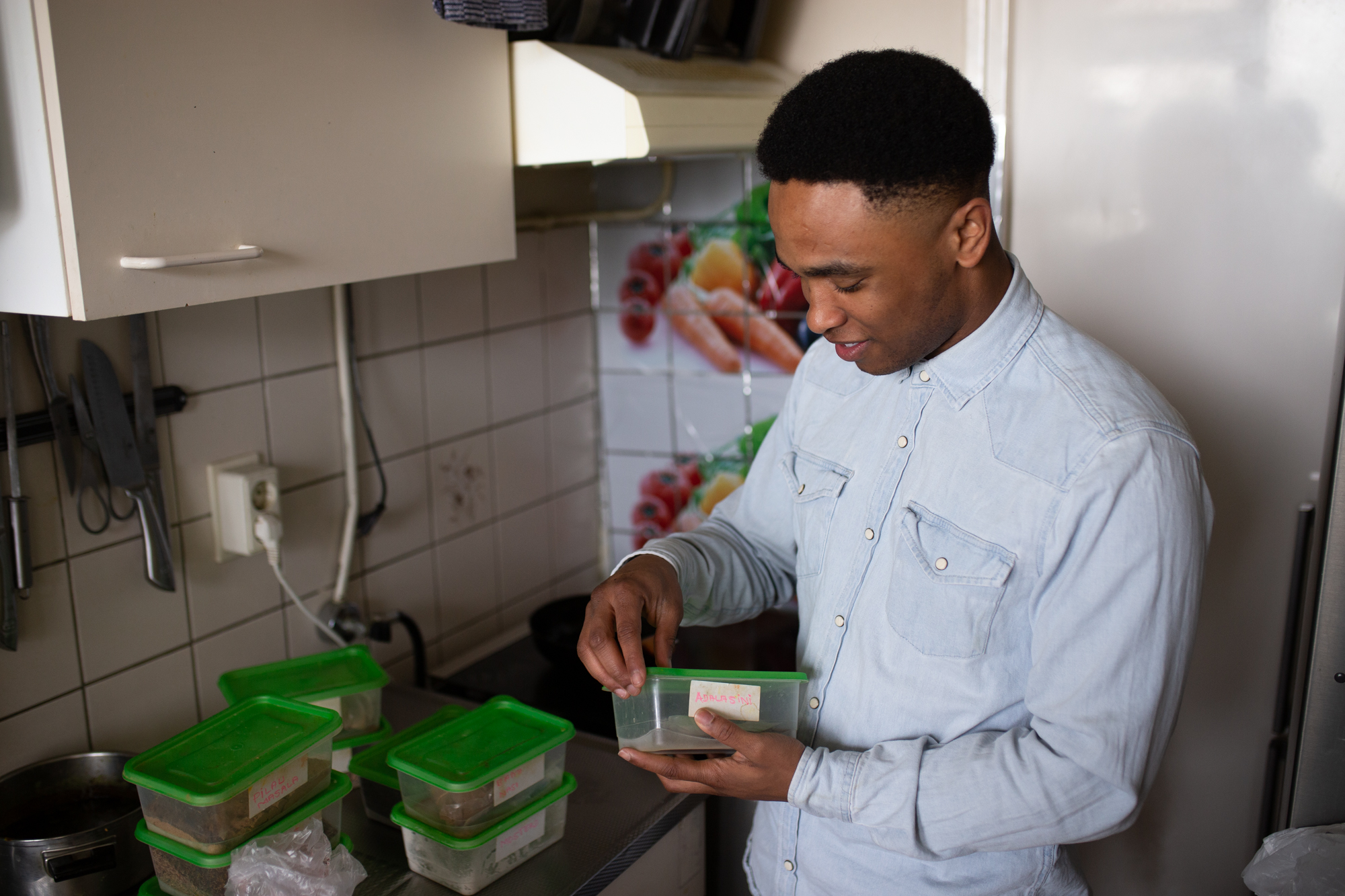
My definition of home is anywhere my family is, which means my mum’s food is there, too. My family stuck together during those difficult years; as long as I have them around me, home can either be in Somalia or the Netherlands.
Also, in Somalia, we consider our neighbours to be like family, and I really miss that. We were very poor and we ate at our neighbour’s house every day, because that way we could all share. We also had shared meals at the refugee centre. That warm feeling of community was stronger there than in the house we live in now.
Many refugees who have come to the Netherlands are living a good life and share their food, but for the wrong reasons: they want to show off. That’s not our style – my family and I still aren’t millionaires, but Alhamdulillah we have a home, food and each other. That’s the most important thing.
Matea, 33, from Bosnia
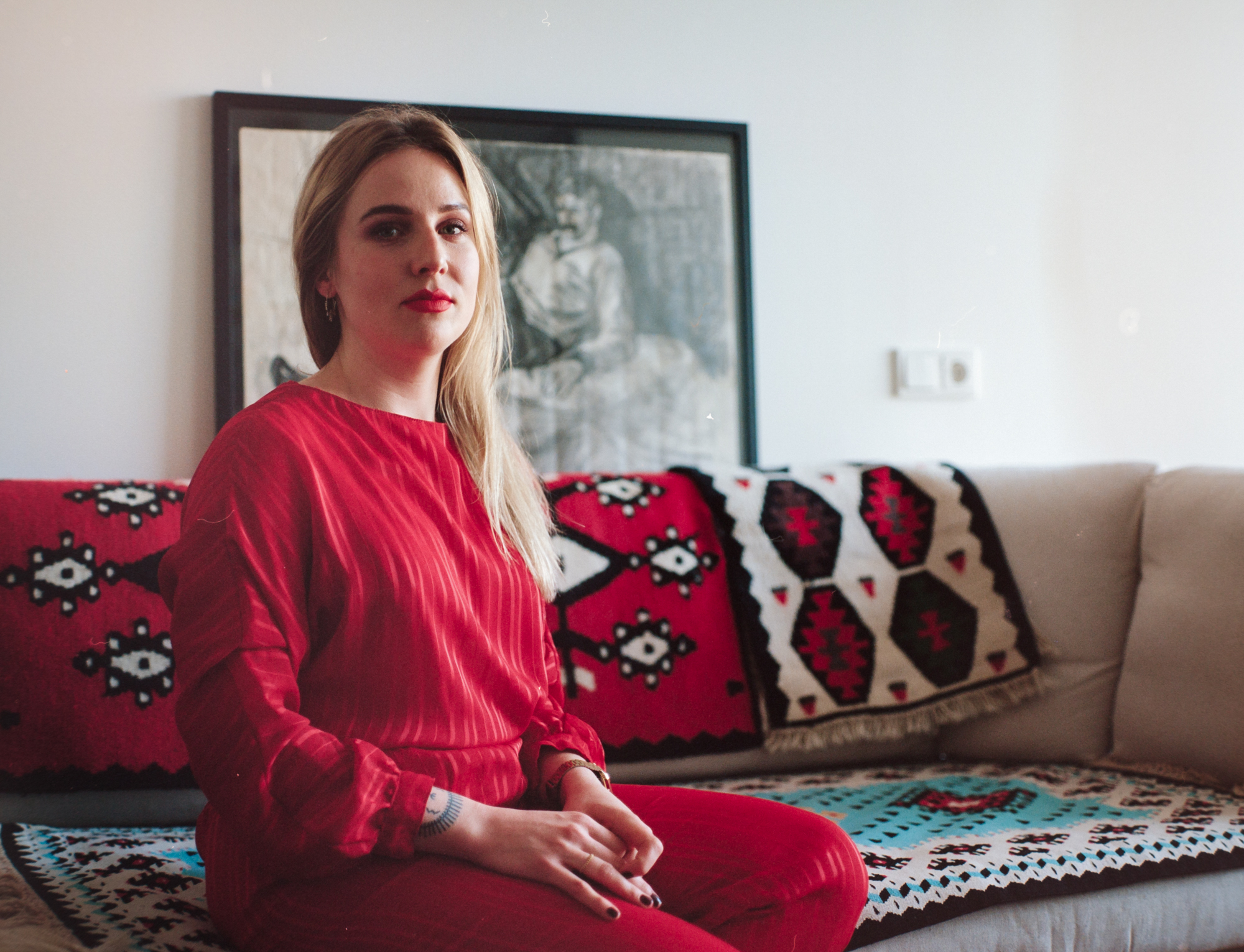
Whenever you step into my home, you will find three traditional rugs. I’ve moved many times in the past few years; even my current home is temporary. As a result, I’ve never bothered to properly decorate, but thanks to the rugs I can at least fill the space in some way.
The rugs remind me of my parents and grandparents, who have all sadly passed away. They help me keep Bosnia and my family alive. Home is where the rugs are.
I was born in Sarajevo, but fled with my mum to the Netherlands when I was seven. It’s been hard for me to feel at home ever since. For a while I did, when I lived with my ex-husband, but after the divorce I felt like I was back to square one. When I left Bosnia I had lost my home, friends and family. I was afraid of also losing my culture, but something small like a rug helped me to hang on to a part of it. I’ll be moving into a studio apartment soon, and I hope I’ll feel that way again. Whatever happens, you can be sure my rugs will be put in a good spot.
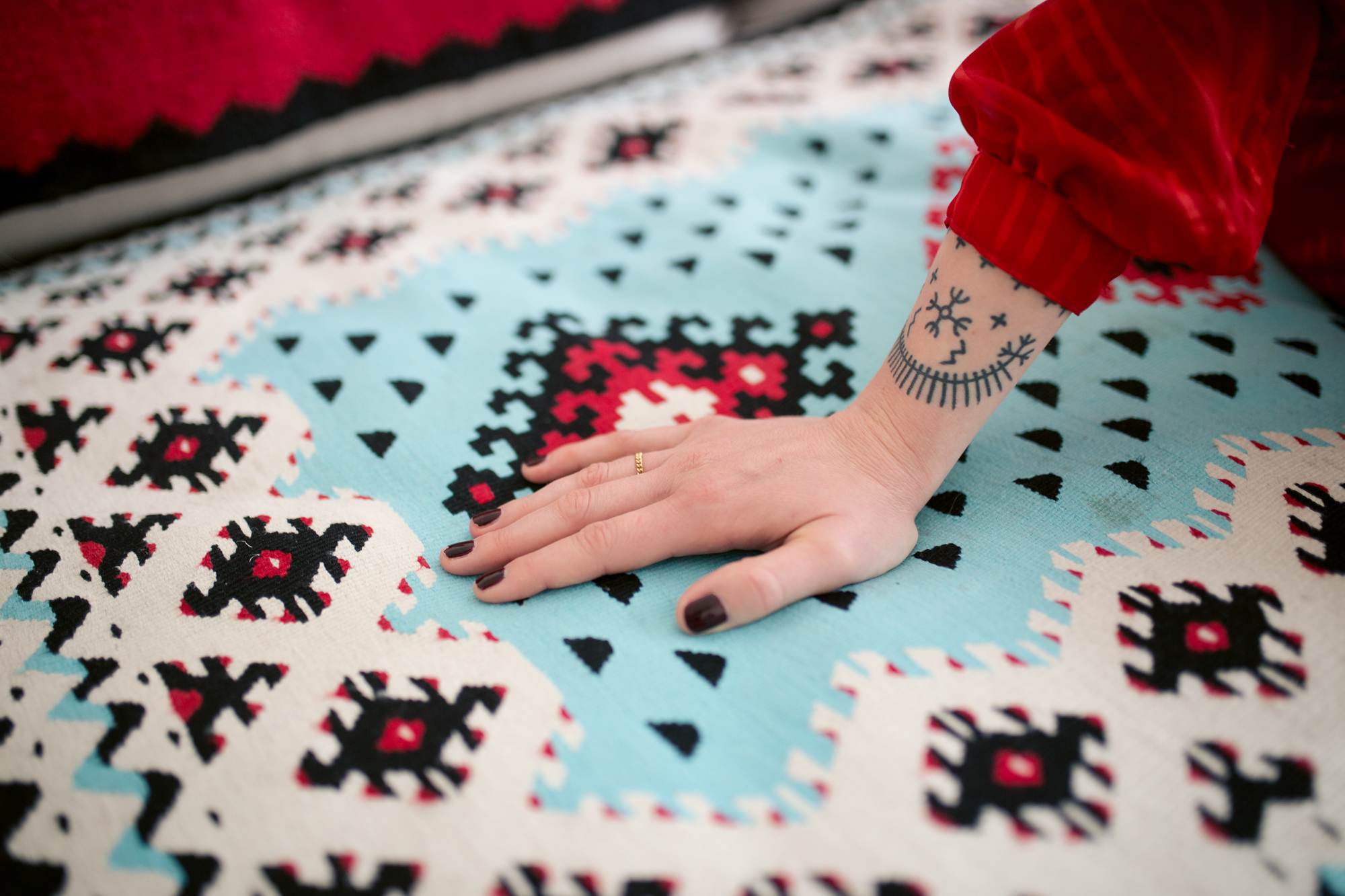
Raed, 28, from Syria
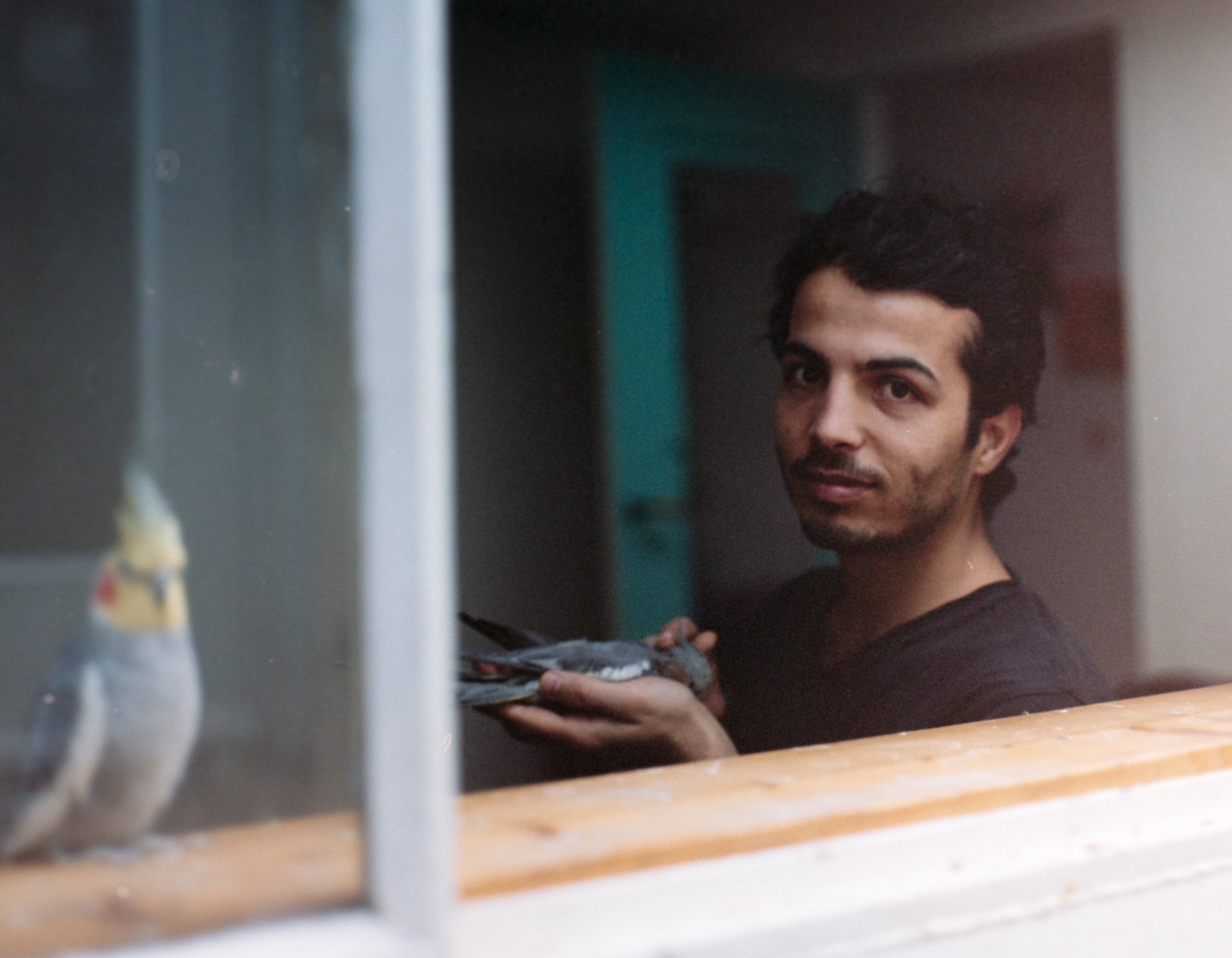
I often try to recreate my mum’s dishes. Right now, I’m working on dolma. She always cooked for the whole family and put something different on the table every day. Middle Eastern cooking reminds me of my family, my childhood and daily life in Syria. Food has always been an important part of our culture, and it’s the only thing I have left now that I live in the Netherlands by myself.
I decided to leave Syria four-and-a-half years ago because of the war. My final four years there were filled with insecurity, and I knew that I had to leave if I wanted to have a safe future that didn’t involve serving in the army. I planned a trip to Sweden, but once I got to Europe I changed my plans and headed to the Netherlands. Everyone kept talking about how well organised everything is here, and about English being sort of like a second language. I also didn’t know anyone in the Netherlands, and I preferred it that way. Later on, I didn’t want anyone to say that they had saved me or that I wouldn’t be where I am now without them. I wanted to figure things out for myself.
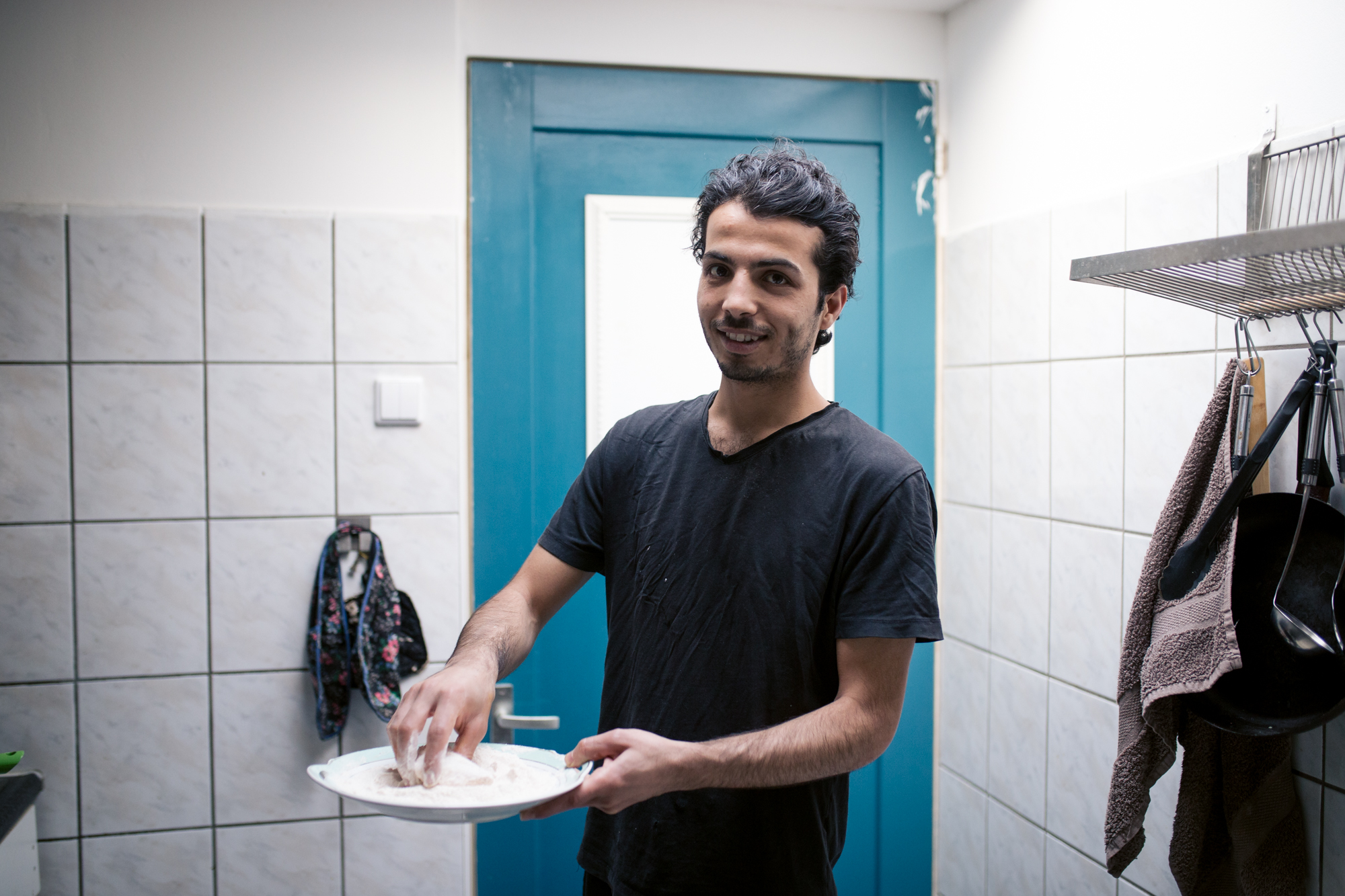
Once I got to the Netherlands, everything turned out to be more complicated than I expected. There are laws and rules for everything here. In Syria, you can solve everything with money. And though I’m grateful to live in the Netherlands, I’ve become a lot lonelier – my family is spread out all over Europe and Syria, and I didn’t take anything from the country where I was born.
In Syria we moved every three years, so I learned not to become attached to physical objects. Memories are the only things you can keep with you forever – along with my mum’s cooking skills, which I luckily inherited at least a little bit.
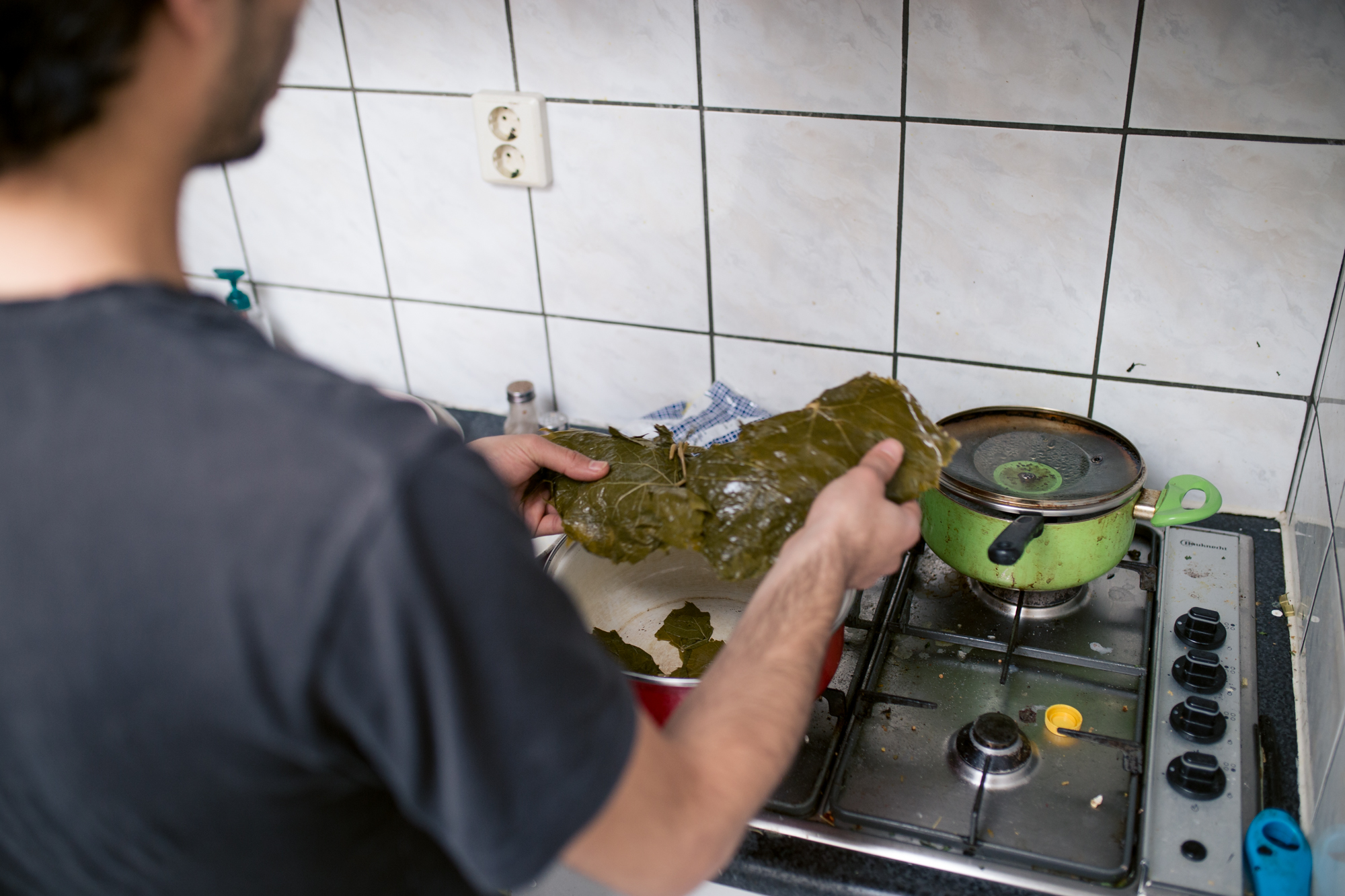
Sally, 26, from Syria
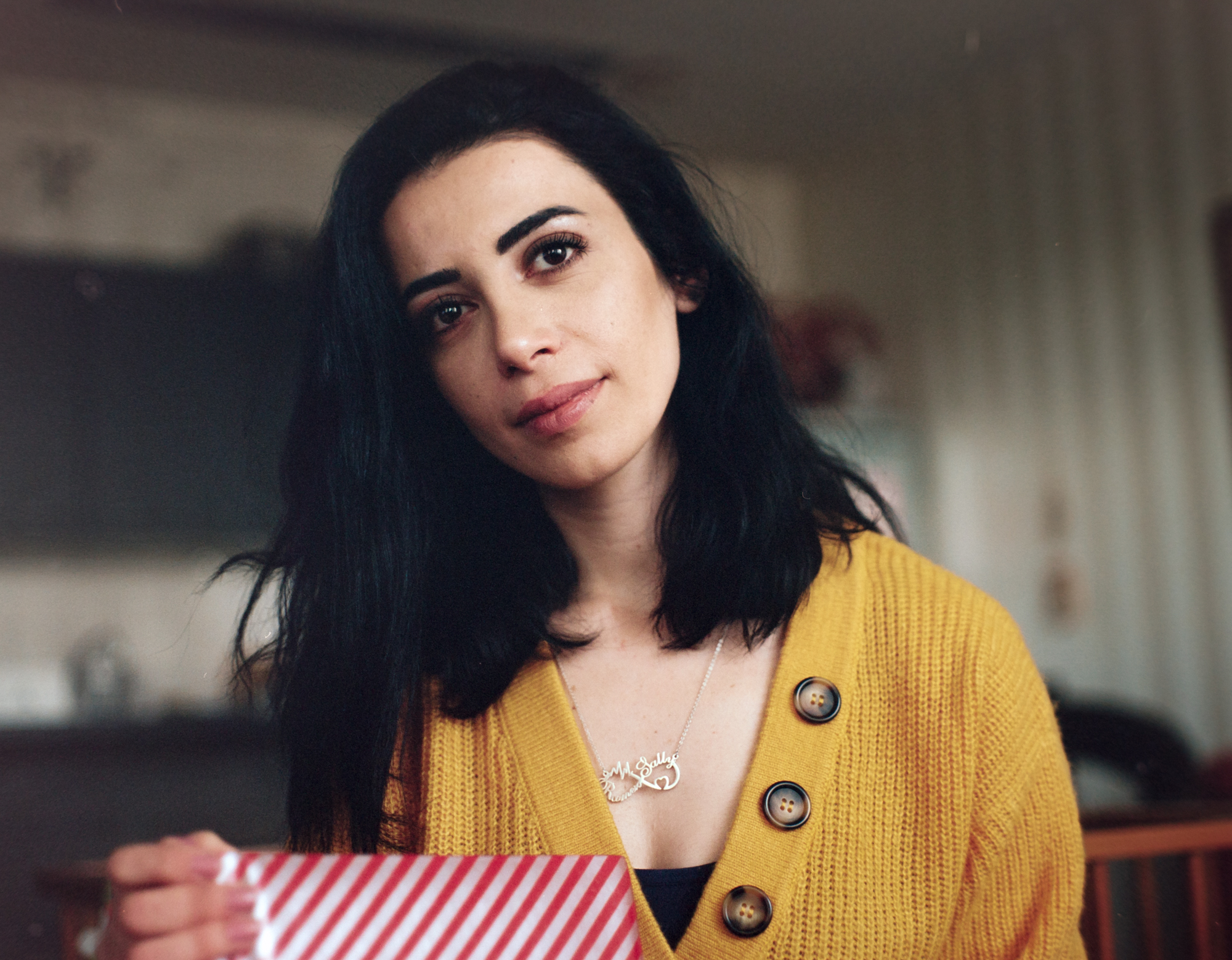
I came to the Netherlands two years ago from Syria. My husband had already been here for a few months and had taken care of my paperwork. We fled because my husband is a Muslim and I’m a Christian, and that meant that we couldn’t be together in Syria; even my family didn’t approve. Still, we kept seeing each other, and one day he proposed to me on the beach. Later that same day, we took the bus to Damascus, where we bought wedding rings in Al-Hamidiyah Souq, the biggest tourist market in Syria.
My husband left for the Netherlands not long after that. My last few months in Syria were really hard – I lost my family and had to move out. It was very lonely. Meanwhile, the situation in Syria was getting worse due to the war. When I initially arrived in the Netherlands, I felt this empty void inside because my mum, sisters and friends were so far away. I started missing them even more after I gave birth to my son and had a family of my own again. For me, home is all about family.
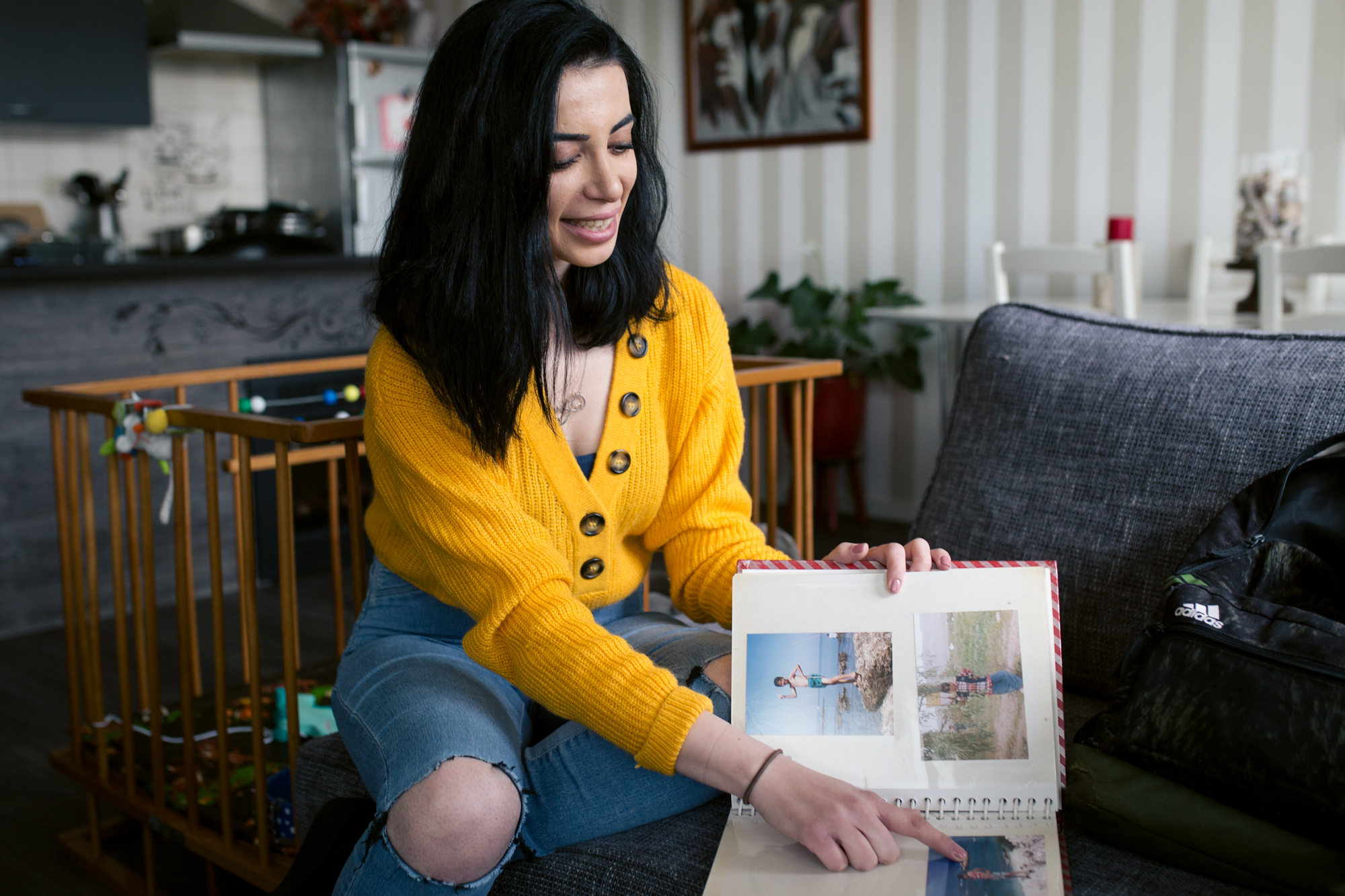
My husband and I got married in Syria, but we never had a proper wedding. When I arrived at Schiphol airport, a few women were waiting for me. I was worried and didn’t understand what was going on, but one of them told me everything was OK and that she had a surprise for me. We walked to the bathroom, where I found a wedding dress waiting for me. I was confused, but put it on. My husband Ramez was standing right outside of the airport. He had planned a wedding for me.
Our wedding rings and my photo albums are my most precious items. I want to be able to see them at home at all times – that’s why three of them are right above the TV.
This article originally appeared on VICE NL.